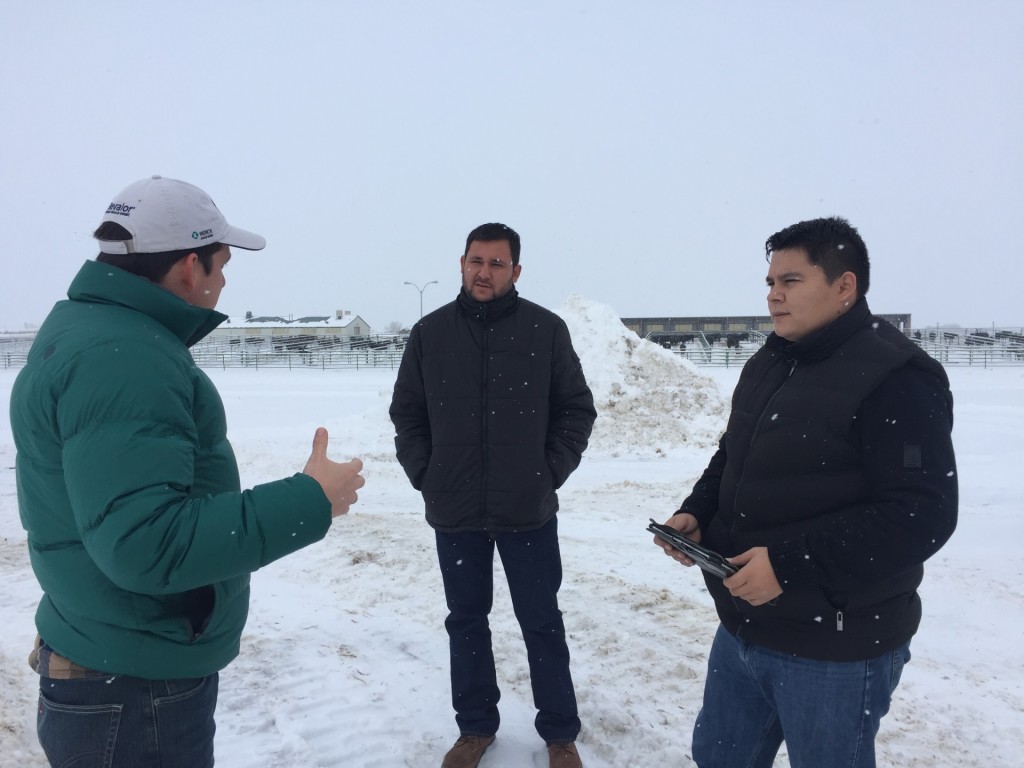
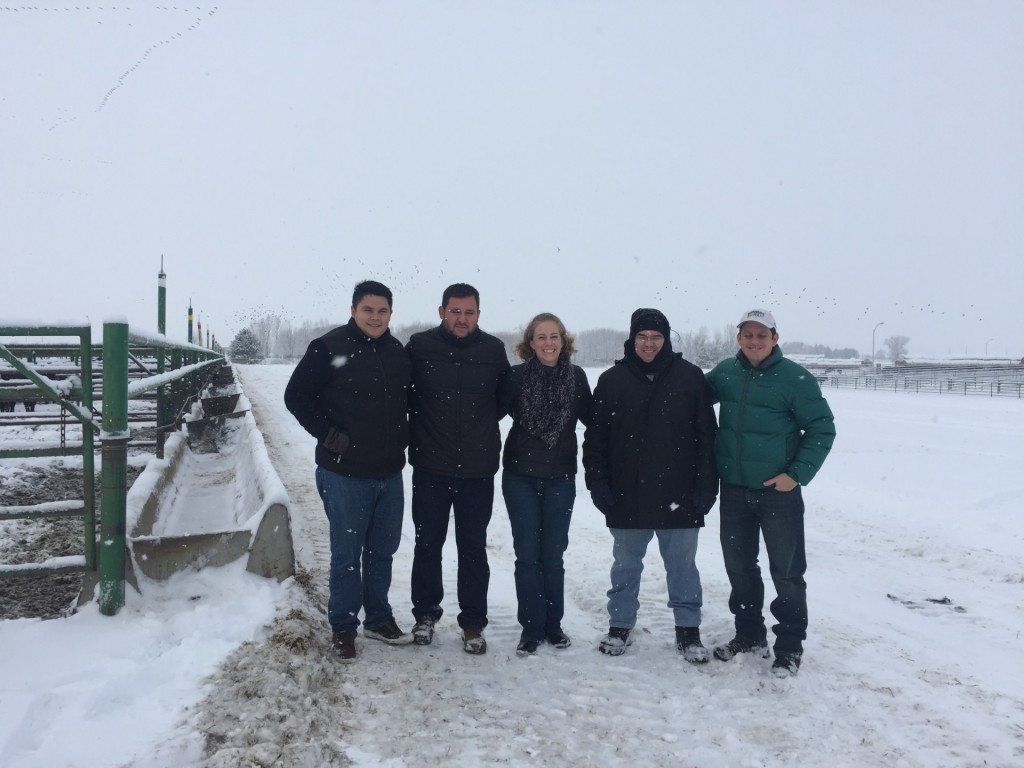
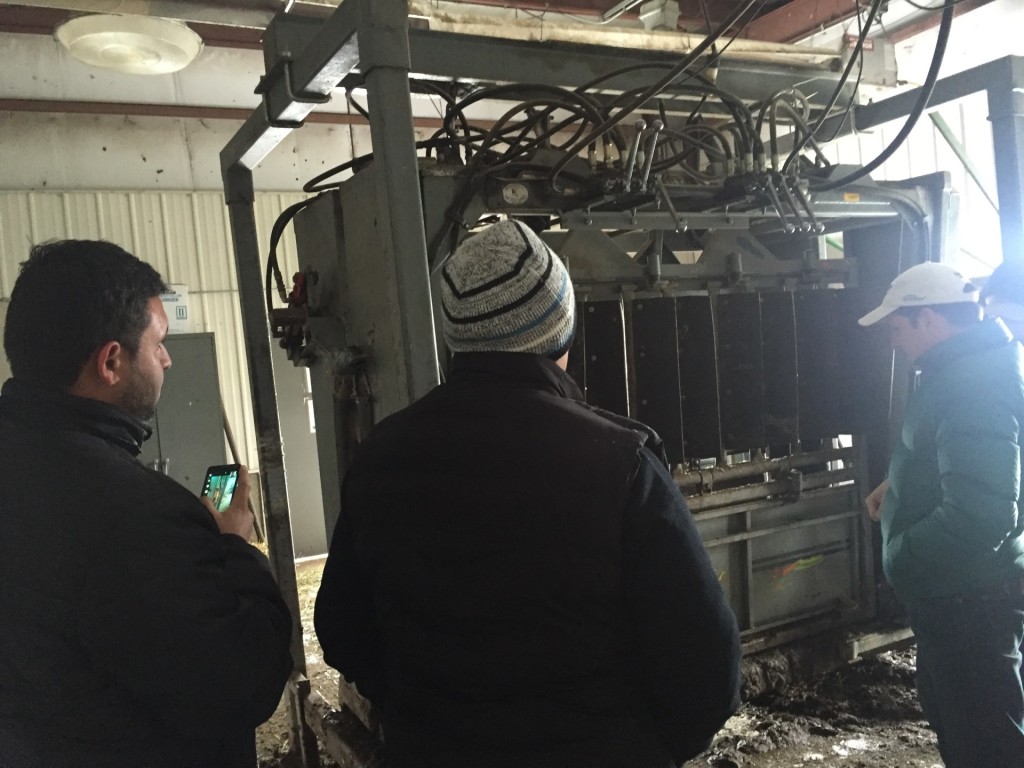
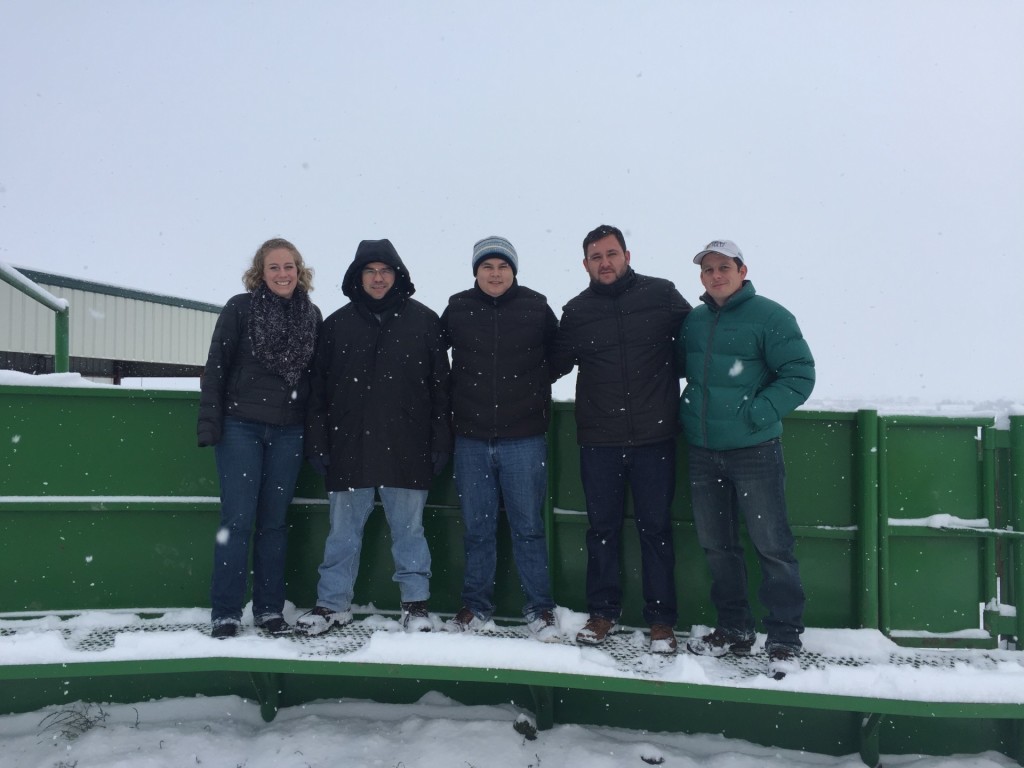
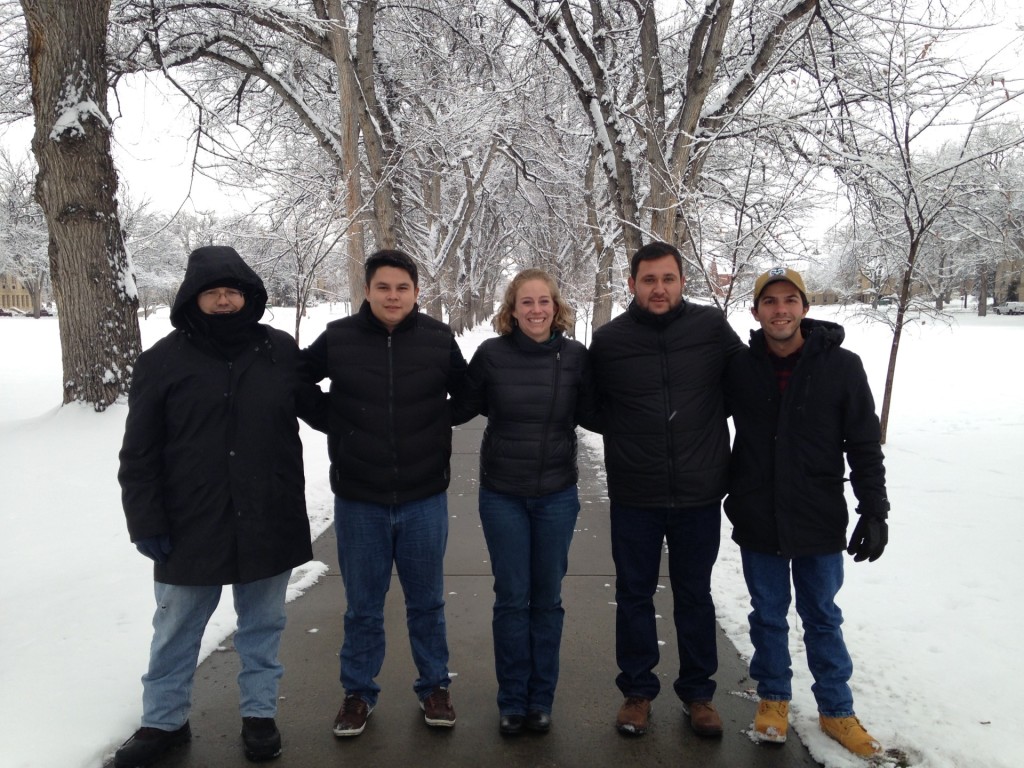
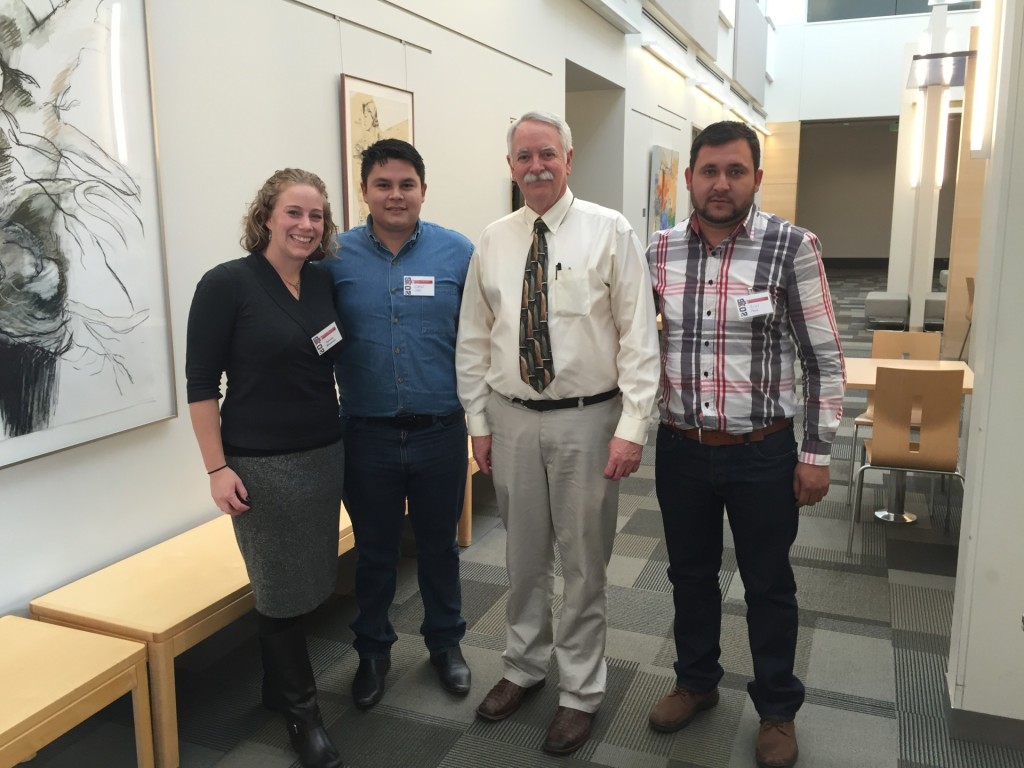
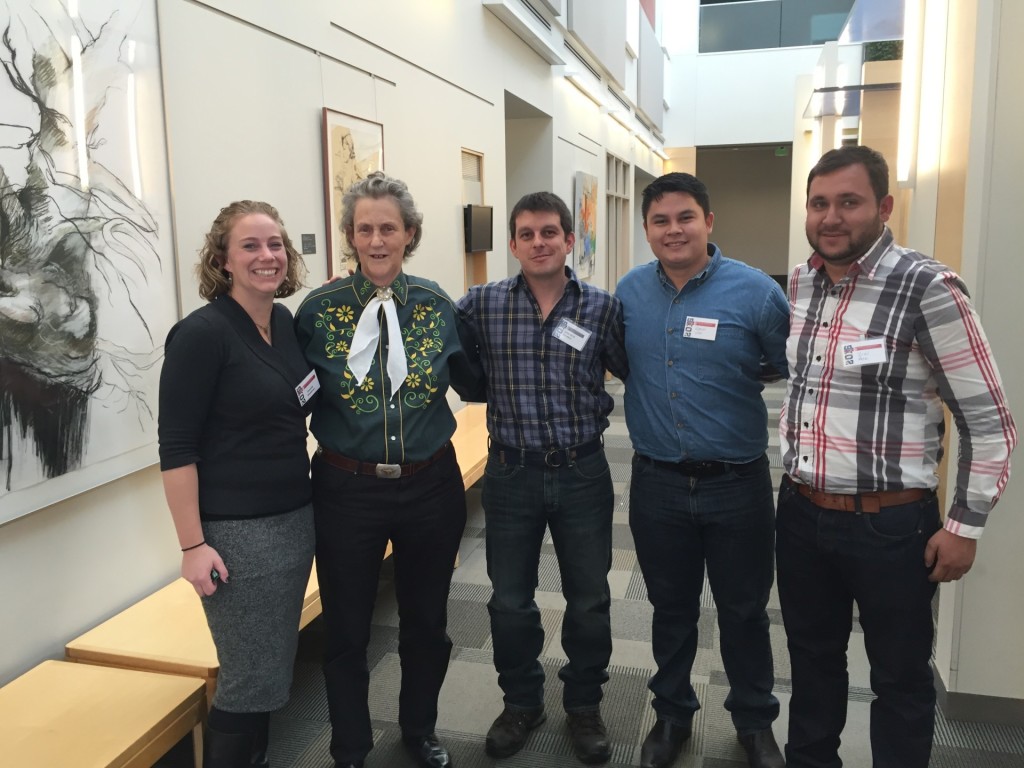
[Para leer en español, haga clic aquí]
The size and scale of American animal agriculture served as cornerstone lesson when two students from La Paz, Mexico, participated in the first exchange of Mexican students to Colorado since the 2015 establishment of the CSU Todos Santos Center in Baja California Sur.
This spring, Jesus Uriel Arce Diaz and Romel Omar Cosio Higuera will graduate from Universidad Autonoma de Baja California Sur (UABCS) as animal production engineers. They both received CSU scholarships to spend four days in Denver and Fort Collins in January where they had access to learn from experts in a variety of agricultural sciences topics, and to attend the International Livestock Forum.
“We wanted to learn about new ideas, technology and techniques related to the livestock industry, and our profession,” Arce Diaz said through a translator. “We saw many things on our visit, and were impressed by the number of animals held and handled here, the many areas and themes of research that are investigated at CSU.”
CSU established a partnership with UABCS founded in research collaboration. The two institutions plan to continue the exchange so students and faculty can gain intercultural experiences and practical opportunities in their professions.
“We are a world economy, and more exchange with different cultures is important,” said Kevin Pond, head of the Department of Animal Sciences at CSU, who hosted the students.
During their time in Colorado, the students toured the Animal Reproduction and Biotechnology Laboratory, CSU Veterinary Teaching Hospital, a dairy, a feedlot with more than 30,000 cattle, and the CSU Agricultural Research, Development and Education Center.
“The students were able to see alternate systems for working with livestock on larger scales, the technology needed and used in those situations and how experts can come together to discuss and work towards addressing issues in a profession that affects the profession and humanity on a global scale,” said Danielle Straatmann, Director of International Student Experiences for the CSU College of Veterinary Medicine and Biomedical Sciences. “The ideas and lectures they were able to participate in could fuel growth in the industry in their region and inspire action and education on a global scale.”
Cosio Higuera said the experience was impactful in the way he looks at management of agriculture in Mexico, as well as livestock reproduction and handling. It was the first visit to the United States of America for both students and they believe continuing to host exchange programs is important to both countries.
“We learned from the experts that there are many ways to improve the method to provide options and healthy food to the masses,” Cosio Higuera said through a translator.
Exchange of knowledge is important for both communities.
“The facilities and the distinguished teachers on our campus are very knowledgeable, and they can share their experiences, as well. We would love for people to know about the people, the hospitality and the beauty of our country.
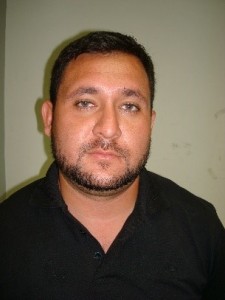 Goal for the trip
Goal for the trip
Jesus Uriel Arce Diaz
“I would like to get to know about new technologies applied in the area of cattle and goat science and technology and apply that knowledge in my country.”
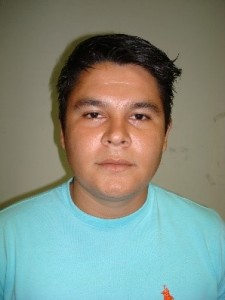 Goal for the trip
Goal for the trip
Romel Omar Cosio Higuera
“Learn everything about livestock, dairy and beef cattle, new technologies compared with those in my country. I would look and learn from the world’s best.”
About the CSU Todos Santos Center
The Colorado State University Todos Santos Center is the university’s first international location and is core to CSU’s mission of teaching, research, service, and outreach.
The Center provides opportunities for CSU students and Baja California Sur residents to collaborate with local partners and businesses to identify needs, conduct research, and produce impactful outcomes.
CSU’s vision in Todos Santos is to cultivate generations of global citizens and to be a part of creating thriving communities through collaboration, experience, and exchange of knowledge in areas such as agriculture, infectious disease, elementary education, environmental and social sustainability, wildlife ecology, veterinary medicine, and public health.